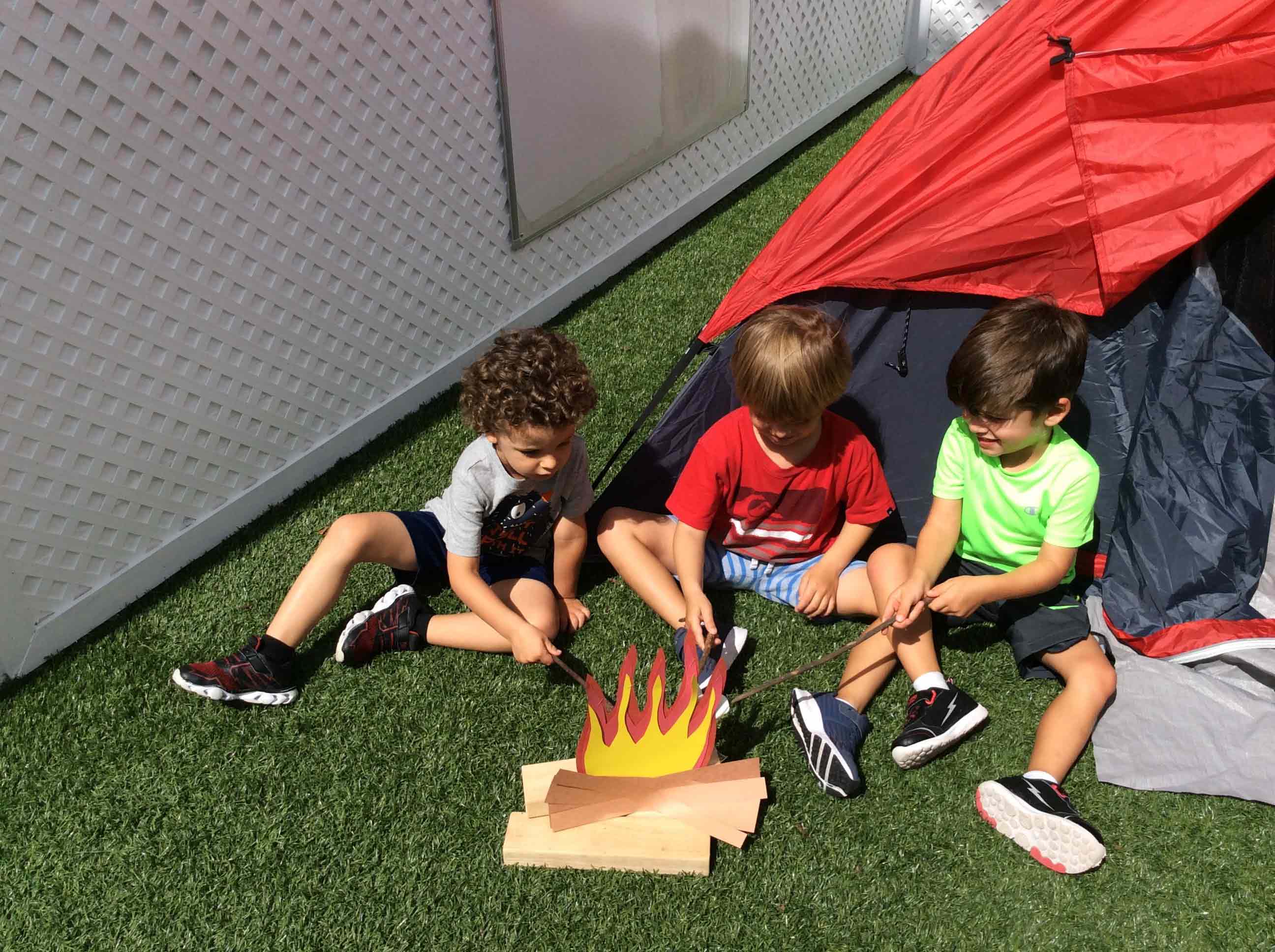“That was child’s play!” we say when a task was simple to perform. And, from an adult point of view, many of the activities in which young children engage may seem simple. Yet when we view those same activities with regard to the actors’ developmental stages, we soon realize that there is nothing simple about child’s play at all. The playtime activities of children are actually complex learning activities.
Playtime is learning time for your preschooler
Children in the preschool years are always learning, whether through observation, interaction, or direct instruction. When your child practices brushing their teeth using a fork, they are learning. When your child balances a stack of blocks or sets a table for their doll, they are also learning. For a child, playing and learning are one and the same.
Allowing your child to learn through play is a very effective method to ensure their future academic success. According to recent research, children who participate in play-based learning programs have better learning outcomes and experience fewer negative effects than those who participate in programs that focus on direct, teacher-centered instruction. As International Baccalaureate Primary Years Programme (PYP) expert Cécile Doyen explains, “We know that play is a cornerstone of creativity and imagination.”
Why is play-based learning so effective?
Tasks that engage the child’s senses, allow them to control their environment, or exercise their imagination all help their brains to absorb information and learn to categorize and process what they experience. These exercises of the brain and body are what prepare a child to advance through school as a curious learner. Of course, enrolling your child in a play-based preschool program doesn’t mean that they won’t be taught the skills they need to prepare for kindergarten. It simply means that they will be taught those skills using a blend of developmentally appropriate methods.
Ensuring proper skills development through a balanced preschool program
Preschool instructors such as those at The Roig Academy use learning through play to provide students with a rich and engaging learning environment. Although Instruction is at times direct, instructors also employ guided play and other play-based methods to help students develop new skills.
When your child enrolls in preschool, their instructors will assess their current skills and then design a set of goals to help them add to those skills. Step by step, your child’s instructors will work with them to ensure that they are learning new concepts and preparing for their next educational milestone. For example, your child may begin by playing with letter shapes before progressing to creating letters out of clay before they begin to learn to write by using pencil and paper. Learning the names of the letters may be incorporated into your child’s day through direct instruction and playtime activities. By balancing direct instruction with multisensory activities that your child perceives as play, their preschool instructors support your child’s natural curiosity.
Free play has an important role as well, as it is during free play that a child can learn to stretch their imagination and explore new ideas. Narration, problem-solving, sequencing, pattern recognition, experimentation, and social interaction are just a few of the skills a child can develop through play.
So, as you consider which preschool program is best for your child, consider the value of play. Look for a program that will engage your child’s curiosity and instill in them a love of learning as they gain new skills. With this solid foundation, they’ll be prepared for a happy, successful transition to kindergarten.
Resources:
Challenging the definition of “play”, The IB Community Blog
Play-based learning can set your child up for success at school and beyond, The Conversation Blog
InternatioBaccalaureateerte Primary Years Programme, IBO.org
Let’s get to know each other!
You can also contact admissions at 305-235-1313.

